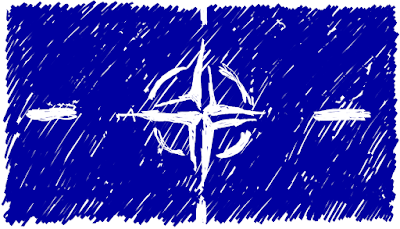Perceptions of World War Two still guide many a thought about how to wage war. Many see the Allies as a supreme example to follow to achieve victory, apparently forgetting that the Allies spent the start of the Second World War being picked off and defeated one at a time.
The newest big military alliance that seems to be under construction is the one against Iran in the Persian Gulf, with Israel cooperating more openly with Bahrain and the United Arab Emirates in the area. It is unlikely that such cooperation would offset the kind of damage Iran is able to do against any specific target in that area such as a ship, naval base or oil facility if it actually goes on the offensive. So, what's the point?
Forming an alliance is the first thing to do if you are scared of taking a lot of damage from an adversary, and would prefer the damage to be more spread out across your broad coalition. If casualties are spread out between different member states of NATO in Afghanistan, for example, each country can brag that it lost very few soldiers while defeating many Taliban. But how does it look when your massive 30-nation alliance gets defeated by a small guerrilla organisation in one country?
Lack of commitment or willingness to fight alone
Another example of an alliance proving absolutely ineffective is the Saudi-led coalition in Yemen. The coalition of Arab armies is not only failing to crush a rebellion in the country but running away, surrendering ground to low-tech rebels.
The problem is that alliances are usually formed to cover up weakness in the first place, and that weakness still exists in them. Alliances often lack commitment, and indeed they are formed in the first place by members who lacked the commitment to fight alone and sought an easier path.
Your military alliance helps the enemy target you
For example, when World War Two began, Germany achieved a massive winning streak against the Allies by simply targeting them one at a time. Allies form their alliance because they feel stronger at the thought of standing shoulder to shoulder with others against an adversary, like some propaganda poster emblazoned with slogans of strength in unity, but practical reality often doesn't work out that way. Often, it works out more like a hit list for the opponent, who now knows who to bump off when he sees them alone in some dark alley.
When the Germans formed their own mighty alliance to attack the Soviet Union, the USSR played the same game the Germans had played, targeting the weaker members of the Axis alliance on the frontline as a means of flanking the Germans. Were it not for the Germans' desire for a mighty coalition, and their false sense of security in that coalition, Soviet victory at Stalingrad may have been unattainable. The Soviets needed no allies to turn the tide in that battle, but the Germans failed because of their allies.
A domino effect
It is worthy of mention that NATO's Asian counterpart, SEATO, dissolved almost immediately after America lost the Vietnam War, proving that all it takes to destroy such a military alliance is to destroy one party protected by the alliance. Since an alliance often involves weak members and thoughtlessly adds members to its ranks, including pitiful ones, defeating an alliance member becomes so easy that the alliance's existence is more of a boon to the opponent than a threat. This is why NATO would not add the feeble Afghan regime or any other especially weak government to its alliance, since it might tie the fate of the alliance to that one regime, as was the case with South Vietnam.
In a military coalition, one member is always more vulnerable than another, and another is more vulnerable following the fall of that first one. As such, alliances often fall like dominoes. Unless their individual members are mighty and committed enough to go it alone and take all the casualties for a significant amount of time (like the British Commonwealth, followed by the Soviet Union, in World War Two) a military alliance means little against a strong peer opponent.
In their worst form, alliances are just propaganda, a false parade of flags to lift the spirits of a fool, good for enticing you to go to war in the first place but not for helping you win.


